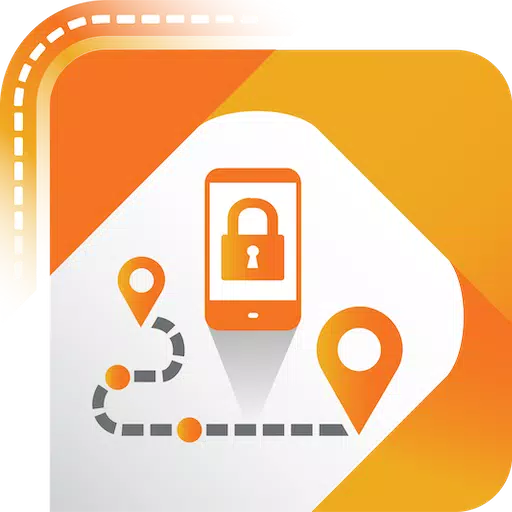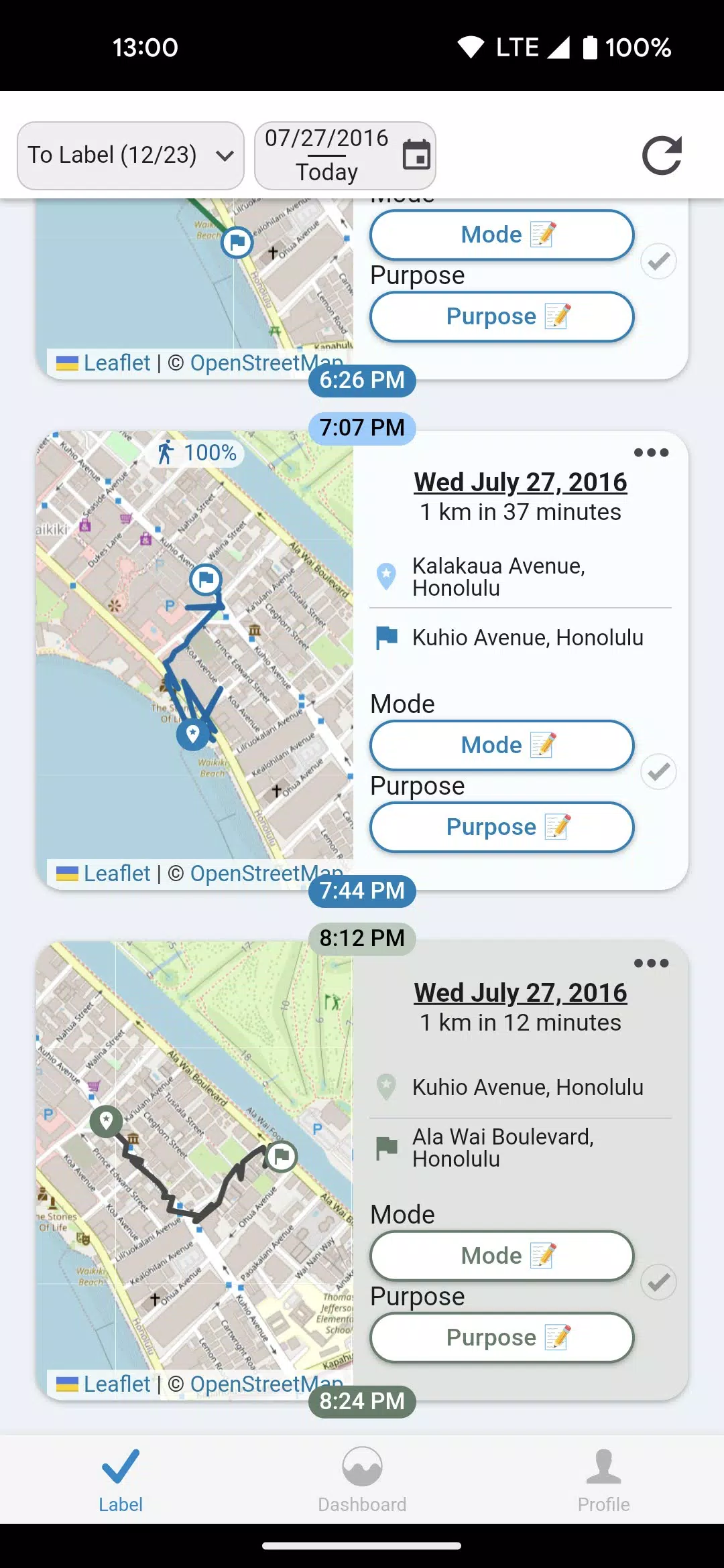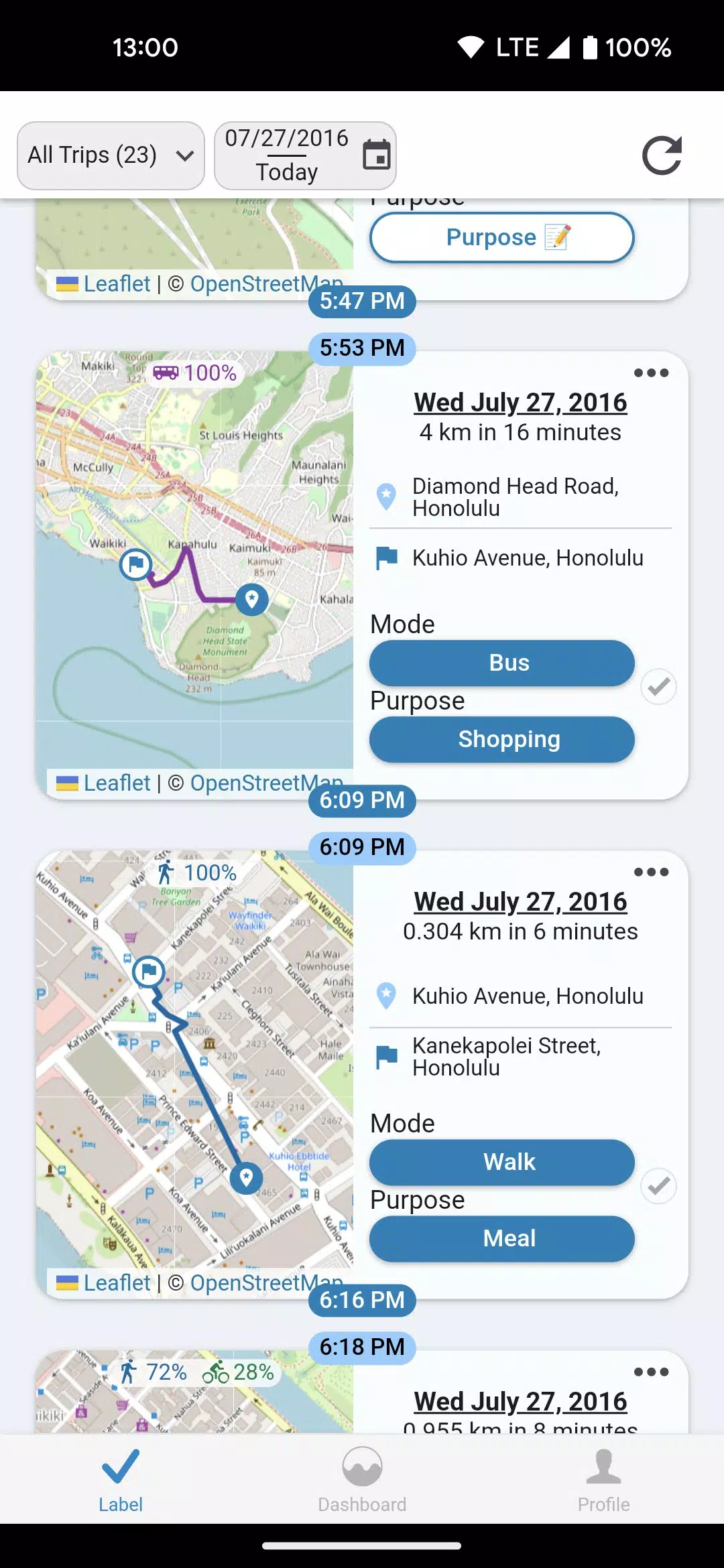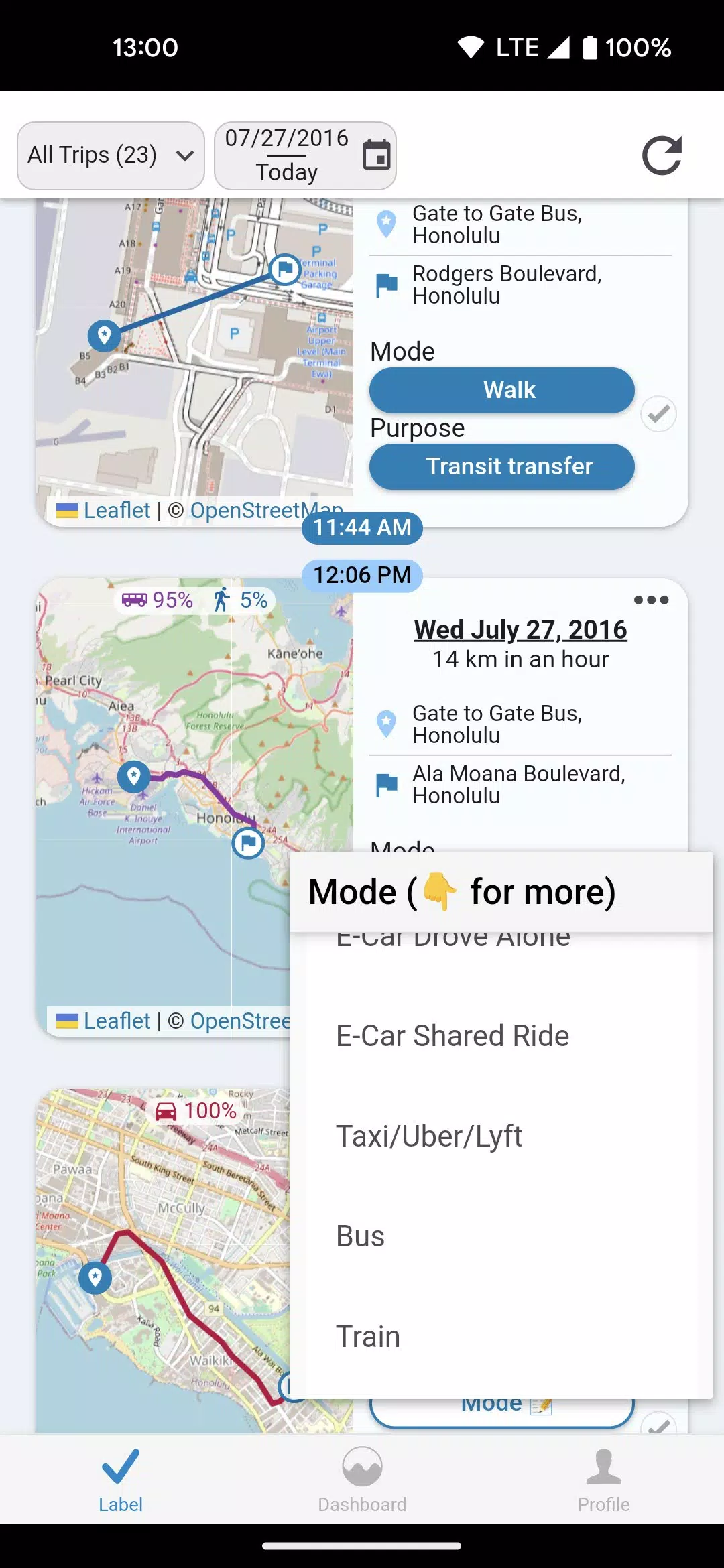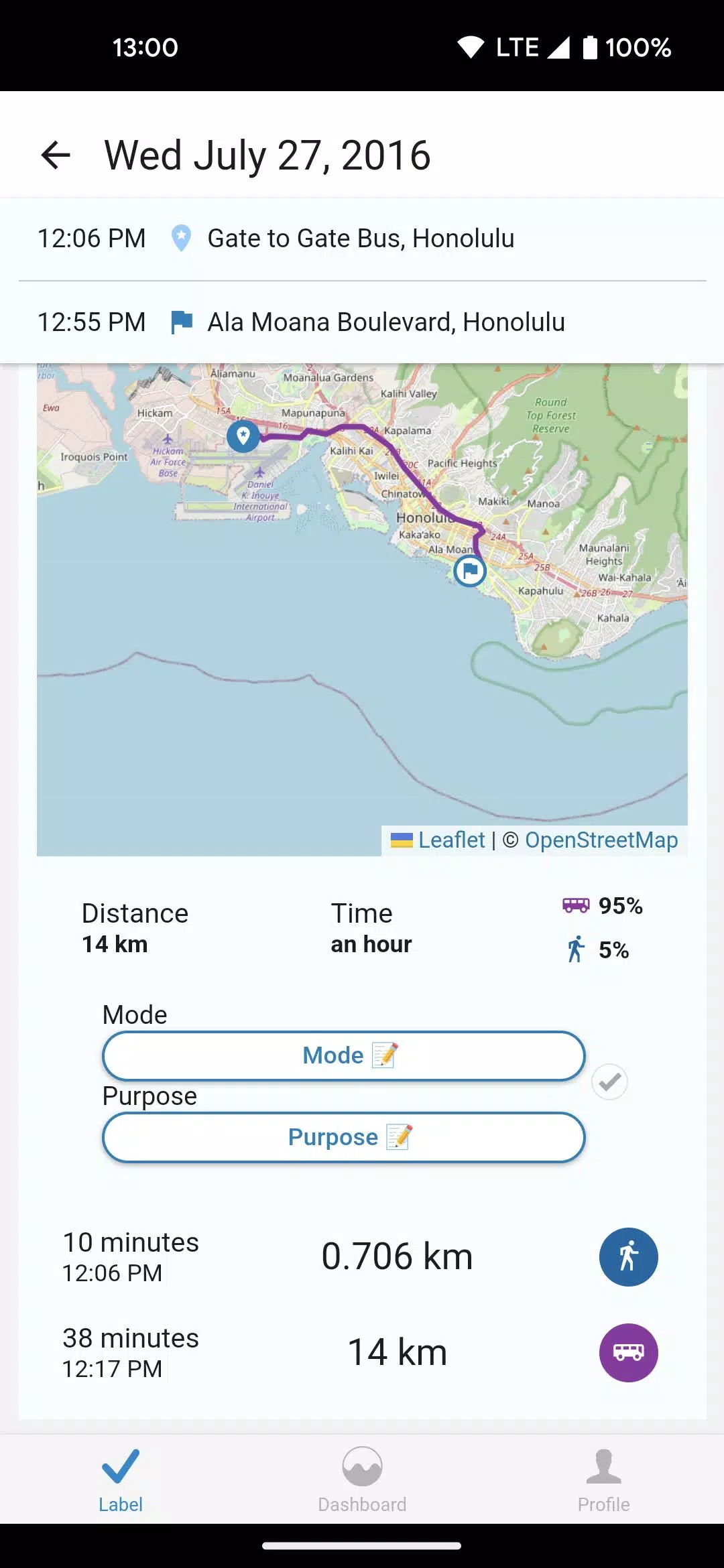The National Renewable Energy Laboratory's Open Platform for Agile Trip Heuristics (NREL OpenPATH, https://nrel.gov/openpath) is a cutting-edge tool designed to help users monitor their travel modes—such as car, bus, bike, and walking—and measure their energy consumption and carbon emissions. This innovative app not only tracks individual journeys but also empowers communities to gain insights into their travel patterns, experiment with sustainable options, and assess the impact of their choices. Such data can be instrumental in shaping effective transportation policies and planning strategies, ultimately fostering more sustainable and accessible urban environments.
NREL OpenPATH provides users with personalized feedback on the environmental impact of their travel decisions. Additionally, it aggregates community-level data, including mode shares, trip frequencies, and carbon footprints, which are accessible through a public dashboard. This dual functionality allows for both individual awareness and broader community analysis.
The application's architecture is built around continuous data collection and analysis facilitated by a smartphone app, supported by a server and automated data processing. Its open-source framework ensures transparency in data handling and allows customization for specific research programs or studies.
Upon installation, the app does not automatically collect or transmit data. Users must opt-in by clicking a link or scanning a QR code to participate in a particular study or program, at which point they are required to consent to data collection and storage. For those not affiliated with a partner community or program but interested in tracking their personal carbon footprint, joining the NREL-run open-access study is an option. Data from these individual participants may contribute to the control group for partner-led experiments.
At its core, NREL OpenPATH functions as an automatically sensed travel diary, utilizing background-sensed location and accelerometer data. Users have the opportunity to add semantic labels to their travel logs as directed by program administrators or researchers.
It's important to note that continuous use of GPS in the background can significantly reduce battery life. To mitigate this, the app is designed to deactivate GPS when the user is stationary, minimizing battery consumption. On average, the app results in approximately a 5% battery drain for up to 3 hours of travel per day.
What's New in the Latest Version 1.9.1
Last updated on Oct 15, 2024
- Make push notifications optional since there are some programs that don't need them

